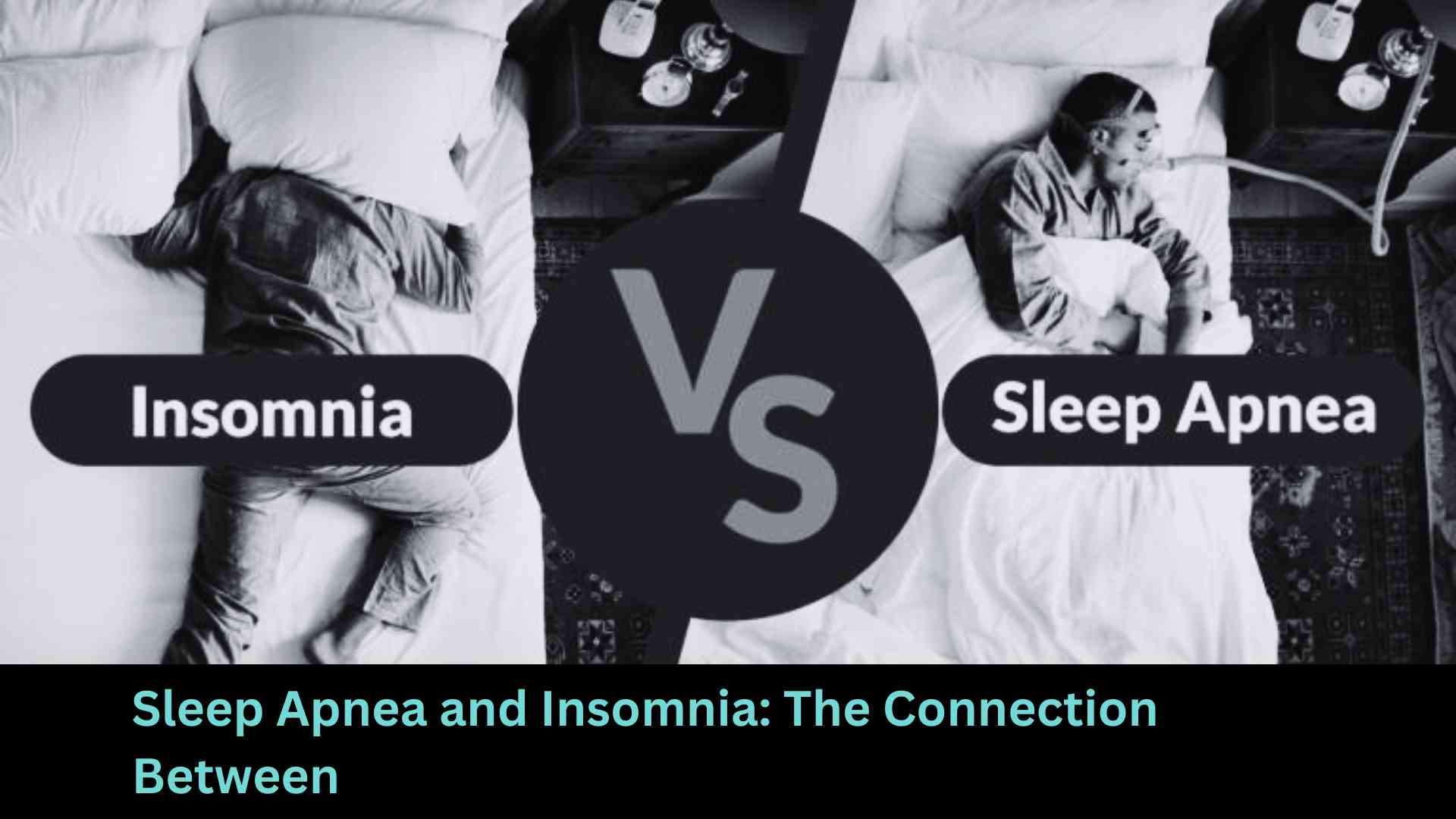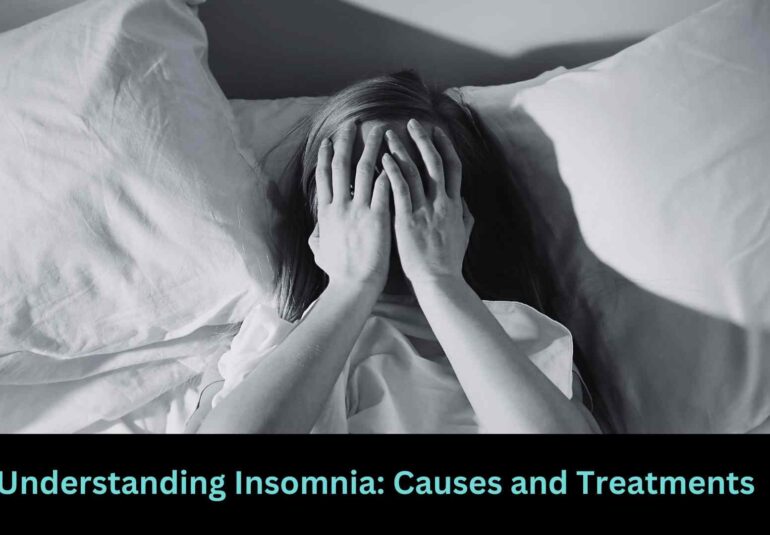
- Insomnia
-
by rohit1
Sleep is essential for our overall well-being, yet millions of people around the world struggle with getting a good night’s rest. Two common sleep disorders, sleep apnea and insomnia, can severely impact the quality of sleep, leading to various health issues. While they may seem unrelated, there’s a significant connection between sleep apnea and insomnia that can exacerbate the effects of both conditions. Understanding this connection is crucial for finding the right treatment and improving sleep health.
In this comprehensive guide, we’ll explore the relationship between sleep apnea and insomnia, diving into their causes, symptoms, and the ways they influence each other. We’ll also provide insights into how these conditions can be diagnosed and treated, so you can take proactive steps toward better sleep.
What Is Sleep Apnea?
Sleep apnea is a sleep disorder characterized by repeated interruptions in breathing during sleep. These interruptions, known as apneas, can last from a few seconds to over a minute and can occur numerous times throughout the night. The repeated pauses in breathing prevent the body from getting enough oxygen, which can lead to serious health problems over time.
Types of Sleep Apnea
There are three main types of sleep apnea:
- Obstructive Sleep Apnea (OSA): This is the most common form of sleep apnea, caused by a physical blockage of the airway, usually due to the collapse of soft tissue at the back of the throat during sleep.
- Central Sleep Apnea (CSA): Unlike OSA, central sleep apnea occurs when the brain fails to send the correct signals to the muscles that control breathing. It’s less common but can be just as dangerous.
- Complex Sleep Apnea Syndrome: Also known as treatment-emergent central sleep apnea, this condition is a combination of both obstructive and central sleep apnea.

Symptoms of Sleep Apnea
Sleep apnea symptoms often go unnoticed because they occur during sleep. However, some common signs to watch for include:
- Loud snoring
- Choking or gasping for air during sleep
- Morning headaches
- Excessive daytime sleepiness
- Difficulty concentrating
- Irritability or mood changes
What Is Insomnia?
Insomnia is a sleep disorder characterized by difficulty falling asleep, staying asleep, or waking up too early and being unable to go back to sleep. Unlike sleep apnea, which disrupts sleep through physical interruptions, insomnia involves the inability to sleep despite having the opportunity to do so. Insomnia can be acute (short-term) or chronic (long-term), depending on its duration.
Causes of Insomnia
Insomnia can be caused by a variety of factors, including:
- Stress: Worrying about work, school, health, or family can keep your mind active at night, preventing you from falling asleep.
- Anxiety and Depression: Mental health conditions often contribute to sleep disturbances.
- Medications: Some medications for allergies, heart conditions, and mental health disorders can interfere with sleep.
- Caffeine, Nicotine, and Alcohol: Stimulants and depressants can disrupt your sleep patterns.
- Poor Sleep Habits: Inconsistent sleep schedules, an uncomfortable sleep environment, and excessive screen time before bed can all contribute to insomnia.
Symptoms of Insomnia
The most obvious symptom of insomnia is the difficulty in sleeping, but it can also lead to:
- Daytime fatigue or sleepiness
- Irritability or depression
- Difficulty concentrating or focusing
- Increased errors or accidents
- Ongoing worry about sleep
How Sleep Apnea and Insomnia Are Connected
While sleep apnea and insomnia are distinct conditions, they often coexist. Research has shown that a significant percentage of people with sleep apnea also experience insomnia, a condition known as comorbid insomnia. The relationship between these two sleep disorders is complex, with each one potentially contributing to the other.
Overlap Between Sleep Apnea and Insomnia
It’s not uncommon for someone with sleep apnea to experience insomnia symptoms. For example, the repeated awakenings caused by apneas can lead to difficulty falling back asleep, resulting in insomnia. On the other hand, the anxiety and stress caused by insomnia can exacerbate sleep apnea symptoms by increasing arousal and reducing the quality of sleep.
The Vicious Cycle: How One Can Worsen the Other
Sleep apnea and insomnia can create a vicious cycle where one condition worsens the other. For instance:
- Sleep Apnea Leading to Insomnia: The frequent interruptions in breathing caused by sleep apnea can trigger awakenings, making it difficult to fall back asleep. Over time, this can lead to chronic insomnia.
- Insomnia Leading to Sleep Apnea: Anxiety and stress from insomnia can lead to shallow breathing and increased muscle tension, which may worsen sleep apnea symptoms. Additionally, sleep deprivation from insomnia can lead to weight gain, a risk factor for obstructive sleep apnea.
The interaction between these two conditions can lead to a significant decline in sleep quality and overall health, making it essential to address both issues simultaneously.
Diagnosis and Treatment
If you suspect you have sleep apnea, insomnia, or both, it’s important to seek medical advice. Proper diagnosis is the first step in finding the right treatment plan.
Diagnosing Sleep Apnea and Insomnia
To diagnose sleep apnea, your doctor may recommend a sleep study, also known as a polysomnography. This test monitors your breathing, heart rate, oxygen levels, and other vital signs while you sleep. A home sleep apnea test may also be an option for some patients.
Insomnia is typically diagnosed based on a sleep history, which may involve keeping a sleep diary to track your sleep patterns, daily routines, and how you feel during the day. In some cases, a sleep study may be recommended to rule out other sleep disorders.
Treatment Options for Sleep Apnea and Insomnia
Treating sleep apnea and insomnia often requires a multi-faceted approach, tailored to your specific needs. Here are some common treatment options:
- Continuous Positive Airway Pressure (CPAP) Therapy: For obstructive sleep apnea, CPAP therapy is the most common treatment. It involves wearing a mask that delivers a steady stream of air to keep your airway open during sleep.
- Medications: For insomnia, medications such as sleep aids or antidepressants may be prescribed, but they should be used with caution and under a doctor’s supervision. For sleep apnea, medications are less commonly used but may be considered in certain cases.
- Cognitive Behavioral Therapy for Insomnia (CBT-I): CBT-I is a highly effective treatment for insomnia that involves changing the thoughts and behaviors that contribute to sleep difficulties.
- Surgery: In severe cases of sleep apnea, surgery may be considered to remove or shrink the tissue causing airway blockage.
Lifestyle Changes to Improve Sleep
In addition to medical treatments, lifestyle changes can play a crucial role in managing both sleep apnea and insomnia. Some tips include:
- Maintain a Regular Sleep Schedule: Go to bed and wake up at the same time every day, even on weekends.
- Create a Relaxing Bedtime Routine: Engage in calming activities before bed, such as reading or taking a warm bath.
- Avoid Caffeine and Alcohol: These substances can interfere with your sleep quality. Try to avoid them in the hours leading up to bedtime.
- Exercise Regularly: Regular physical activity can improve sleep, but avoid vigorous exercise close to bedtime.
- Manage Stress: Practice relaxation techniques such as deep breathing, meditation, or yoga to reduce stress and anxiety.

Conclusion
Understanding the connection between sleep apnea and insomnia is key to improving your sleep health. These two conditions can feed into each other, creating a cycle of poor sleep and daytime fatigue. By recognizing the symptoms and seeking proper diagnosis and treatment, you can take control of your sleep and improve your overall quality of life.
For more information on sleep disorders, treatment options, and lifestyle tips for better sleep, visit RxOnlineGuide. Our comprehensive resources can help you navigate the challenges of sleep apnea and insomnia, offering expert advice and support to help you achieve restful, restorative sleep.



